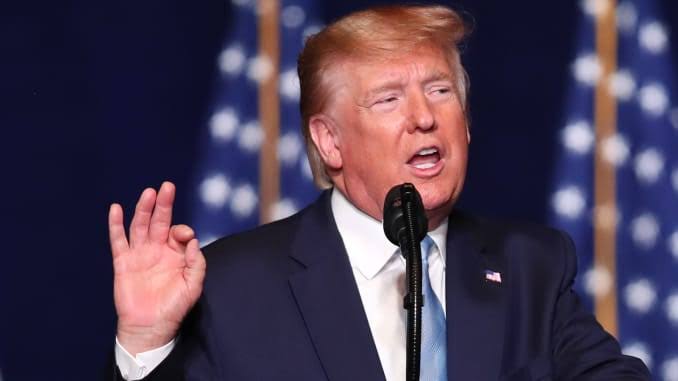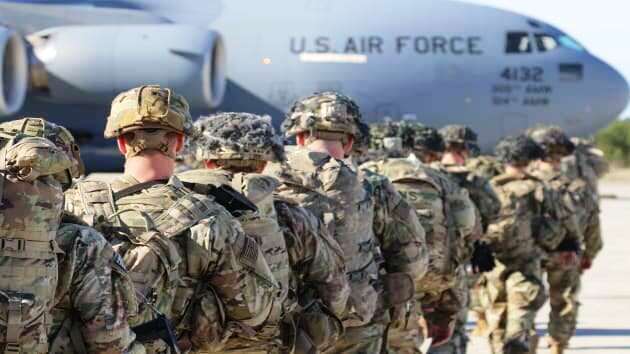Considering Iran’s current weakened economy, Trump’s return to the U.S. presidency in 2024 could create another wave of pressure on the Islamic Republic. For instance, the country’s Chamber of Commerce has cited that a potential Trump comeback will likely cause its oil exports to “suffer again.”
Iran was grappling with a budget deficit of about $3.7 billion at the time, mainly due to the economic sanctions. A 20 percent decrease in the Iranian rial coincided with Republican nominating contests earlier this year.
On Sunday, Jan 20, 2020, the President of the United States, Donald J. Trump, threatened to slap sanctions on Iraq after the Iraqi parliament passed a resolution calling for the expulsion of U.S. troops from the country.
Conflict in the Middle East escalated following the killing of a top Iranian general, Qasem Soleimani, in a Trump-directed U.S. airstrike in Baghdad.
Talking to reporters on Air Force One, President Trump said: “If they do ask us to leave, if we don’t do it on an amicable basis, we will charge them sanctions like they’ve never seen before ever.”
“It will make Iranian sanctions look somewhat tame,” Trump added.
According to Trump, the U.S.A. has a very expensive airbase in Iraq, which cost billions of dollars to build. Therefore, “we’re not leaving unless they pay us back for it,” the U.S. President said.
Mr Trump also said that “if there’s any hostility, that they do anything we think is inappropriate, we’re going to introduce sanctions on Iraq, massive sanctions on Iraq.”
Qasem Soleimani, the leader of a Special Forces unit in the Islamic Revolutionary Guard Corps (IRNA), was the leading brain behind Iran’s military operations overseas. He was found dead late Thursday while leaving Baghdad airport when a U.S. drone ordered by Trump struck his convoy.
One of those killed with Soleimani was a top Iraqi militia leader, Abu Mahdi al-Muhandis, who also remained deputy commander of Iran-backed militias called the Popular Mobilization Forces.
The Iraqi government has criticized Washington for violating its sovereignty.
The U.S. ambassador to Iraq, Matthew H. Tueller, met Iraqi Prime Minister Adil Abdul-Mahdi on Monday to discuss the future of American soldiers in Iraq, told NBC News by two U.S. officials in touch with the ongoing U.S.-Iraq situation. They said the United States was hoping Mahdi would inform the ambassador of its decision to expel U.S. forces from Iraq.
The killing of Soleimani heightened tensions between the U.S. and Iran, which were already worsening after Trump in 2018 withdrew from the landmark Iran nuclear agreement brokered by the Obama administration.
Tehran has declared revenge for the commander’s targeted killing.
When reporters on Air Force One asked Trump if he was concerned about retaliation from Iran, Trump said: “If it takes place. If they do anything, there will be major retaliation.” He further added that “they’re allowed to kill our people. They’re allowed to torture and harm our people. They’re allowed to use roadside bombs and blow up our people. And we are not even allowed to touch their cultural sites. It does not work that way.”
U.S. President Donald Trump said on Saturday in a series of tweets that the U.S. has locked in 52 Iranian sites “at a very high level and important to Iran and Iranian culture.”
Trump also warned in those tweets that the U.S. would come “very fast and very hard” if Tehran retaliates.
The situation appears to be even worse, given the ongoing conflict in Gaza and the recent tit-for-tat drone and missile strikes on Israeli territory by the Islamic Republic.



